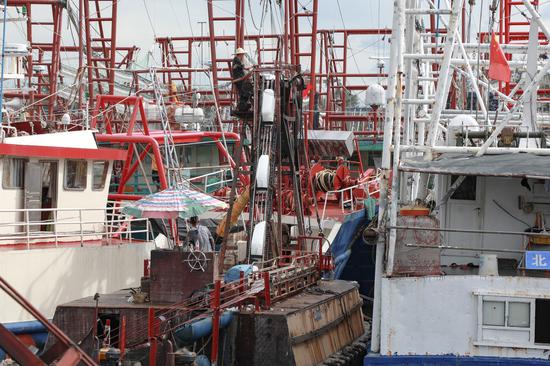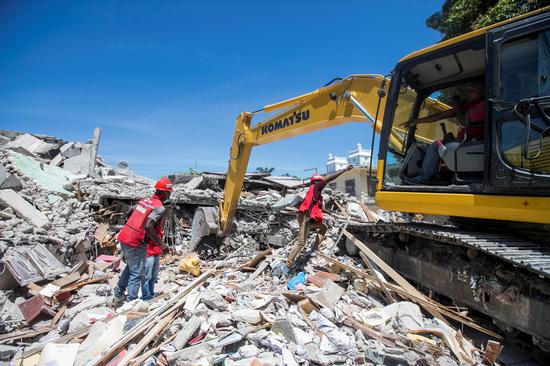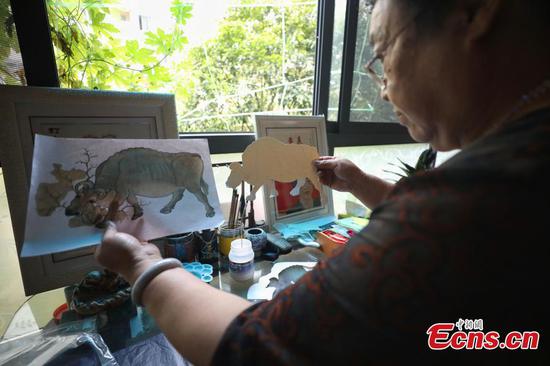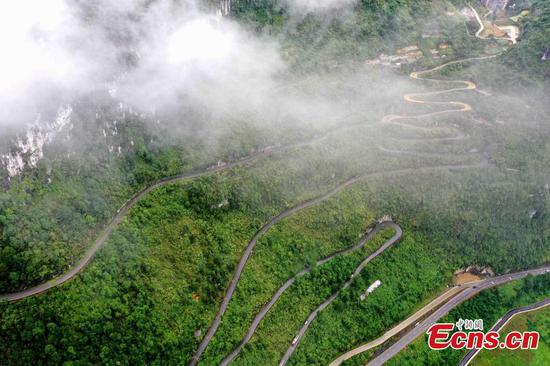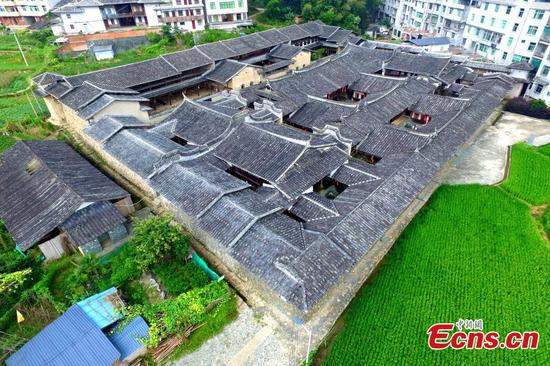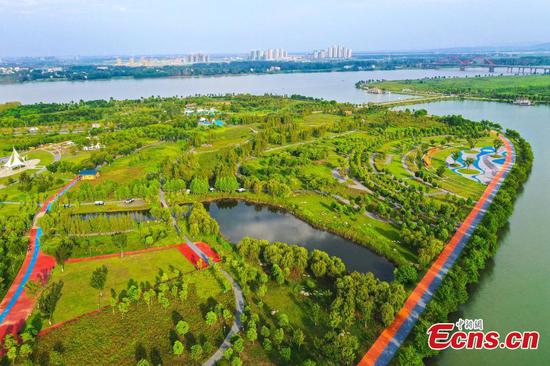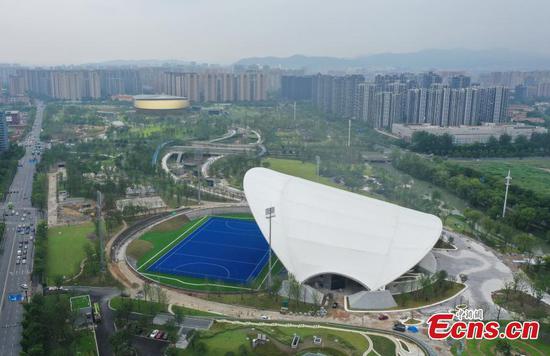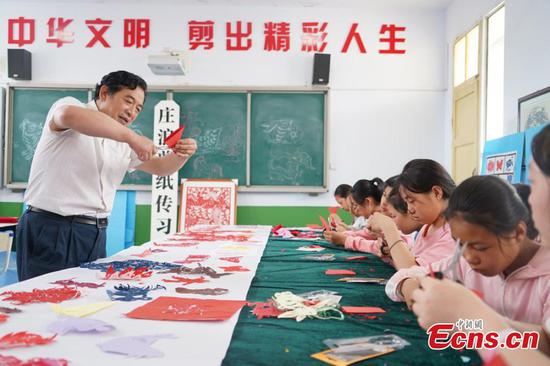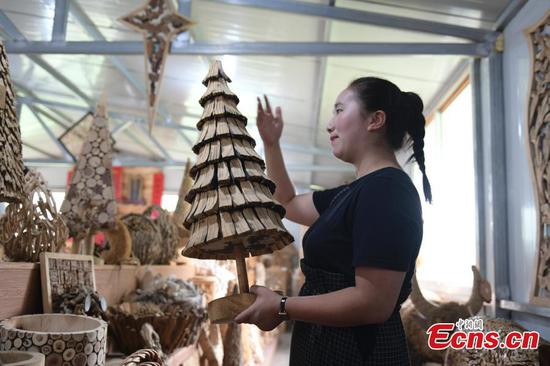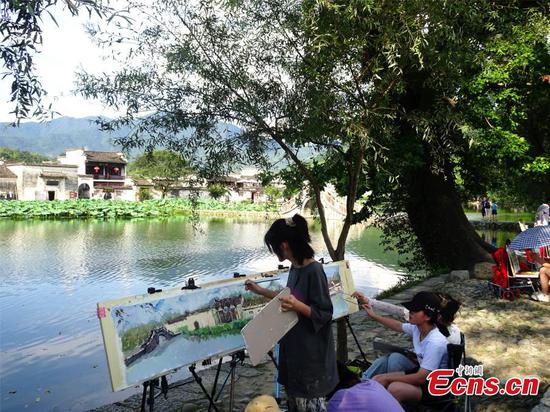
A shopper buys vegetables at a supermarket in Handan, Hebei province. (HAO QUNYING/FOR CHINA DAILY)
China is expected to intensify policy support to shore up economic growth and further boost the real economy, as the expansion of both industrial production and social consumption lost some steam recently, according to economists and analysts.
As pressure to ensure sustained recovery and the sound growth of the Chinese economy gradually increases, the country needs to bolster the efficiency of proactive fiscal policy and enable the sustained recovery of smaller companies and struggling sectors with a proper and adequate level of liquidity, they said.
Their comments came after key economic data released by the National Bureau of Statistics on Monday showed that growth slowed in July from June, indicating that China's economic recovery remains unstable and unbalanced due to an increasingly complex and challenging external environment.
The nation's industrial output rose by 6.4 percent year-on-year in July, down by 1.9 percentage points compared with June, bringing two-year average growth to 5.6 percent.
Retail sales of consumer goods grew by 8.5 percent year-on-year to reach about 3.5 trillion yuan ($540 billion) in July, down by 3.6 percentage points compared with June, although higher than that in the same period in 2019 and last year.
Fu Linghui, an NBS spokesman, said at a media conference on Monday that China's economic growth was in line with expectations and shows stable recovery momentum.
But the economic recovery remains unstable and unbalanced, due to the challenging external environment, and the combined impact of sporadic local outbreaks of COVID-19 and natural disasters, he said.
"While maintaining policy consistency, as well as the stability and sustainability of macro policies, China will pay more attention to achieving stable growth," said Lan Zongmin, a researcher at the Development Research Center of the State Council.
"More emphasis will be placed on cross-cycle adjustments to balance the mid to long-term effect of macro policies, as well as strengthening targeted support for key economic areas and weak links," he said.
There is still policy room for China to shore up economic growth, said Lan, adding that a prudent monetary policy should maintain reasonably ample liquidity, and provide precise and continuous support for midstream and downstream enterprises, small and medium-sized enterprises and stressed industries.
Wen Bin, chief researcher at China Minsheng Bank, said it is important for China to closely monitor the growth momentum of factory output and changes in market demand.
"There is no problem for China to realize its goal of expanding the economy by more than 6 percent this year, but the country will face greater pressure to drive up economic growth in the future," he said.
"China should continue to boost domestic demand, nurturing growth impetus for consumption, while moderately accelerating the pace of local government special bond issuance and the construction of major engineering projects, to make further use of the role of infrastructure investment in stabilizing investment and growth," he added.
Data from the NBS showed that investment in fixed assets (excluding rural households) reached more than 30 trillion yuan in the first seven months of the year, up 10.3 percent on a yearly basis, but 2.3 percentage points lower than that in the first six months of 2021.
The nation remains attractive to foreign investors, as data from the Ministry of Commerce showed that actual use of foreign capital by the nation in the first seven months increased by 25.5 percent year-on-year to reach 672.19 billion yuan.










